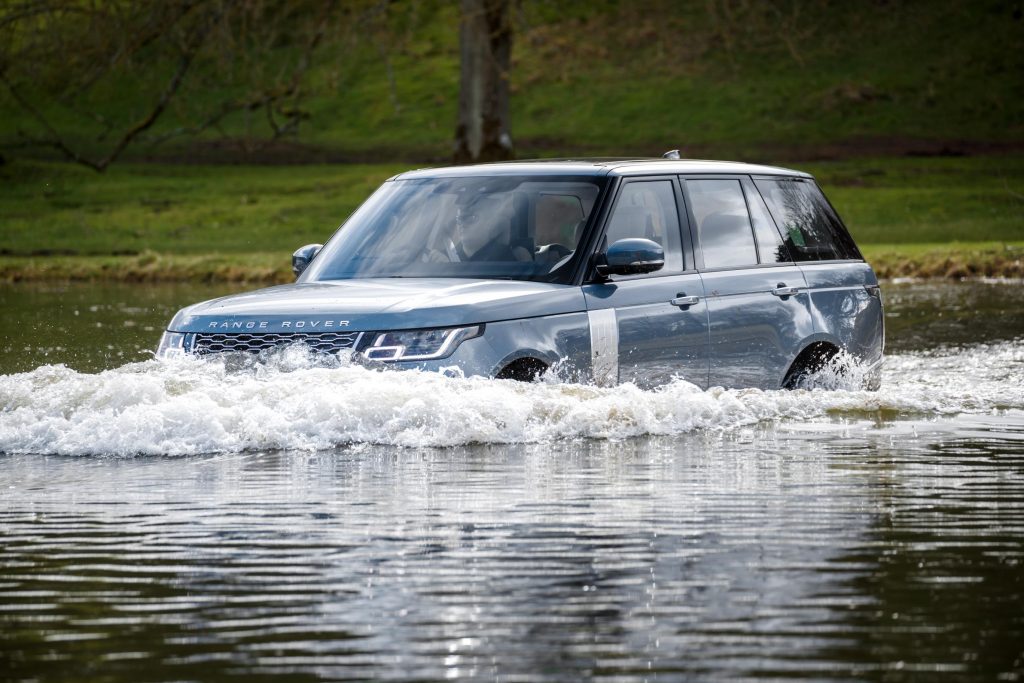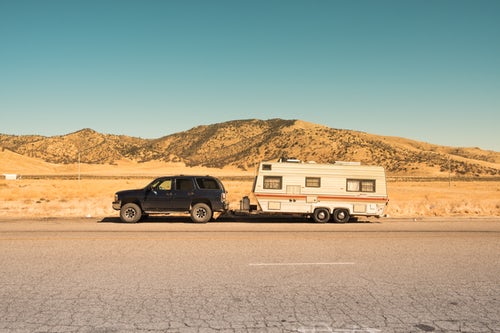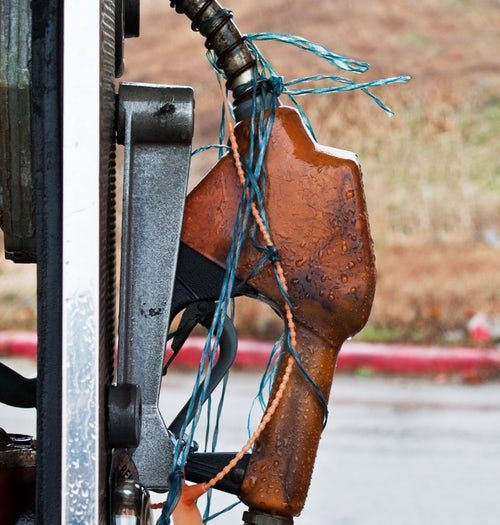We’ve been approached by a number of concerned diesel owners who have heard that contaminated diesel has destroyed more than a few engines, costing their owners thousands of dollars in repair bills. So, what’s the real story?
Many diesel owners report problems with water in diesel fuel, and the consequences can be very serious, with repairs costing $10,000 to as much as $19,000.
The problem is not so much with common rail diesels (although many manufacturers delayed introduction of CRDs to the Australian market until the quality of our diesel fuel was improved – and those who went ahead and introduced CRDs before the fuel standard was raised face numerous problems). Instead, it seems to come about because of the high pressure fuel injection, and the tolerances required to keep the system operating.
After hearing their reports of damaged injectors, and various warranty claims, we approached the manufacturers for their take on the problem.

What do car manufacturers say?
When we put a series of questions to Mazda who made enquiries internally and came back to tell us they have recorded instances of diesel engine problems caused by contaminated fuel but it wasn’t limited to specific models. One owner of a BT50 we spoke to told us that his engine failed due to contaminated fuel and Mazda repaired it under warranty. Well done, Mazda! But don’t expect every company to be so generous. Despite reports that Mazda has repaired engines under warranty, they are under no obligation to do so if an engine is damaged by contaminated fuel.
Ford advised us that they “regularly” receive calls regarding fuel contamination issues on “most of the diesel models” in their range. After consulting with technicians at Ford, we were told that modern diesels all tend to run the fuel lines at very high pressure, making them sensitive to any form of fuel contamination. According to the Ford technician, older diesels didn’t run at such extreme pressures and so were more tolerant of dirty fuel. Ford’s representative reported that for customers who have reported problems, these were “nearly always caused by external factors, most often filling up with diesel contaminated with water or particulates”. Under such circumstances, this is not a warranty issue. “Customers often recover costs from the fuel retailer or under their car insurance policy,” he said.
When we approached Subaru for a comment, David Rowley checked with his technical people and reported no reports of such issues. He surmised that it may be partly related to “rural” subsidised fuel, a lower grade of fuel supplied to farmers on rural properties. He commented that diesel engines are all calibrated for the quality of diesel fuel available locally.
Mitsubishi also reported regular calls from owners who had experienced fuel contamination issues. The Mitsubishi representative said that members of the Pajero Club were keen on adding an additional water separator and fuel filter but Mitsubishi’s position is that there is no real need.
Volkswagen was also very forthcoming about potential diesel fuel issues. “People often store and carry their own diesel fuel,” we were told, “and this can create a problem with water and contaminants.” The advice was to ensure that containers for diesel fuel are kept scrupulously clean and use the oldest fuel first rather than storing it over a long period. “Standard fuel filters will cope with water in the fuel until it reaches an excessive level. However, diesel floats on water, so the cheapest and most sensible insurance policy is not to run your fuel too low in the tank.” We had it explained to us in simple terms. “When the fuel level gets low, the fuel sloshes around in the tank. Because the fuel is floating on top of the water, there’s a good chance the system will take a big gulp of water rather than fuel. The contaminants are being stirred up as well when the level is low.” The advice was for owners to be cautious about where they refuel, although for many diesel vehicles owners, this isn’t practical because they are often in remote areas and have to refuel with what’s available. Both the Subaru and Mitsubishi representative wondered if some of the problems come about after refuelling in remote locations from tanks primarily designed to refuel agricultural equipment. “Filling up your vehicle from farm tanks may not be the best idea. Agricultural equipment may cough and splutter but continue to run on fuel that would bring your SUV to a standstill,” was the warning. The recommendation to avoid potential problems is simple: replace the fuel filter on a regular basis, and more often if you are using your vehicle in challenging conditions. Also recommended is replacing the air filter more often if the vehicle is used in dusty conditions. “They are disposable and relatively cheap maintenance items, and that makes them cheap insurance”
(thanks to Allan at United Petroleum for clearing up whether diesel floats on water or water floats on diesel)

Should you fit a secondary filter?
The general consensus from the car companies is that there is no need to go to the expense of fitting a supplementary fuel filter, although there is plenty of opinion to the contrary.
Matthieu Raudonikis is a long-term 4WDer and writes for 4×4 Australia magazine (www.4x4australia.com.au). When we discussed the contaminated fuel issue with him, he was adamant. His succinct summation: “I wouldn’t leave town in a diesel vehicle without a supplementary fuel filter. There are plenty of options available from the aftermarket costing a few hundred dollars, that could save you thousands in repairs should you cop a tankful of dirty diesel.”
We discussed the issue with a number of after-market companies and they, not surprisingly since they make a living from fitting after-market filters, agreed with Matthieu.
Most of them quoted a figure around $500 including fitting to install a supplementary fuel filter. However, the situation regarding specification was not quite so clear. Some companies fit supplementary fuel filters with a two-micron rating. We checked with Mazda to see what the standard Mazda filter is rated at and they told us it is five microns.
Diesel engines rely on the fuel to provide upper cylinder lubrication, so limiting the flow of fuel by fitting a finer filter could potentially cause some problems. One specialist, Berrima Diesel, explains that virtually all 4WD diesels use water traps. To save under-bonnet space and to keep all the maintenance in one area for the fuel system, most modern fuel filter system water traps are integrated into the fuel filter. Some older diesels such as the Toyota Landcruiser 60 Series 2H diesel had a separate water trap. Modern fuel systems return large volumes of fuel back to the tank for cooling the injection system and for this reason, Berrima Diesel agreed that fitting a second main filter could be restrictive. Their recommendation is to fit a “pre-filter” element of 30 microns.
Despite this advice, most car companies recommend against fitting a supplementary filter. Subaru’s response was representative of the industry attitude: “We don’t recommend any filtering beyond what’s supplied from new and would advise customers to check with their dealer or our customer call centre regarding any potential warranty implications if they are considering after-market changes.”
Mazda takes a similar position. “Mazda does not recommend non-genuine accessories or unauthorised modifications.” It was reiterated that the warranty will be affected if the damage has been caused by a supplementary filter. When we enquired further, we were told, “We do not recommend installation or test different specification filters and thus cannot comment on possible effects on the engine or fuel system.”
This puts diesel owners in a double jeopardy situation: take the risk of contaminated fuel damaging the engine, which would not be covered by warranty, or install a supplementary filter to overcome the problem, and face the possibility of any engine damage not being covered by the factory warranty because after-market filters are not recommended.
We asked if Mazda had a supplementary filter of their own that they could recommend to concerned owners. Like all the other companies we talked to, they didn’t.
The problem for most owners if a problem arises will be having sufficient evidence to make a claim against the supplier of contaminated fuel. Trying to place the blame on one supplier will be almost impossible, unless owners have refuelled regularly and exclusively at the one outlet and kept records. Obviously, 4WDers tend to range far and wide, so this is unlikely to be viable.
All we can suggest is that diesel owners are vigilant. Avoid refuelling, wherever possible, at servos with low fuel turnover. Avoid, if possible, country fuel depots or fuel retailers whose primary market is agricultural businesses. If you are carrying and storing your own diesel fuel, pay attention to the state of your storage and don’t keep fuel longer than absolutely necessary. Refuel before your tank drops below quarter full. And replace your fuel filter at least as often as recommended in the service schedule, and more often if you are using your vehicle off-road or in extreme conditions.
As for fitting a supplementary filter, we are of two minds. It seems to us that a supplementary filter, properly supplied and fitted by a reputable after-market installer, is unlikely to create any problems that will void your warranty. On balance, we think the extra peace of mind is probably worth it. But ensure it’s a pre-filter rated at 30 microns rather than a filter that has any potential to reduce or limit fuel flow.
